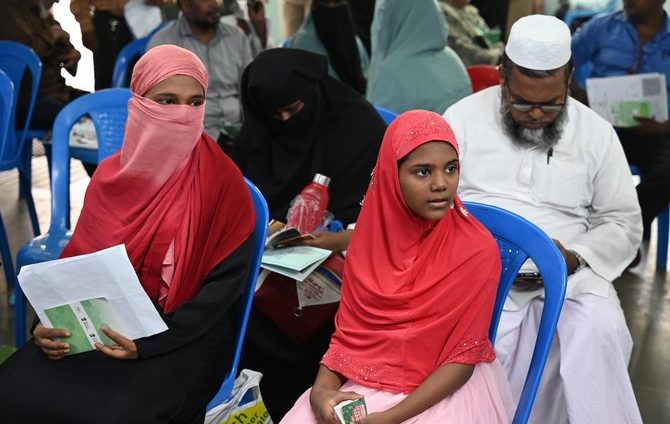Gulzar Begum, a 74-year-old woman from South Delhi, is on the verge of realising a dream she has nurtured for two decades. As she prepares to travel to Saudi Arabia, thanks to her own determination and savings by teaching the Qur’an.
In the coming month, Gulzar Begum will join thousands of Indian female pilgrims who will perform the Hajj without a mahram, a male guardian. This significant change has brought immense joy to Begum, who expressed her indescribable feelings of happiness. For years, she diligently saved money for the Hajj, despite not being wealthy herself. With no husband and financially constrained sons, she had been unable to find suitable companions for the pilgrimage.
The decision made by the Kingdom of Saudi Arabia last year to remove the requirement for women to be accompanied by a mahram has made it possible for Gulzar Begum and other women to travel alone. Previously, women without a mahram could only undertake the journey in large groups consisting of other women.
India has adapted its Hajj policy following the rule change, and according to the Ministry of Minority Affairs, over 4,300 female pilgrims in the Ladies Without Mahram category will participate in this year’s Hajj, making it the country’s largest-ever group of women traveling alone without a male family member. In comparison, the previous year saw around 2,000 women in this category. With a Muslim-minority population of over 200 million, the Hindu-majority India holds the world’s largest Muslim-minority population. Among them, 175,000 individuals are traveling to Saudi Arabia for the Hajj pilgrimage, which is one of the five pillars of Islam.
Special flights have already commenced for the pilgrims this week. Munawari Begum, the vice president of the Haj Committee of India, has recently returned from Saudi Arabia after making all the necessary arrangements for female pilgrims. She revealed that this year’s Hajj holds special significance due to the efforts made to ensure suitable accommodations for women in Saudi Arabia. Furthermore, women attendants have been assigned to cater to their needs.
The changes in India’s Hajj policy, announced in February, have been welcomed by many Muslim women. Kausar Jahan, the chairwoman of the Delhi Haj Committee, stated that it was an endeavour to empower women. She emphasised that the policy not only promotes economic independence for women but also fosters self-reliance. Previously, many women desired to undertake the Hajj alone, but the strict rule prevented them from doing so. Now, women have the freedom to exercise their independence and embark on this spiritual journey on their own terms.







